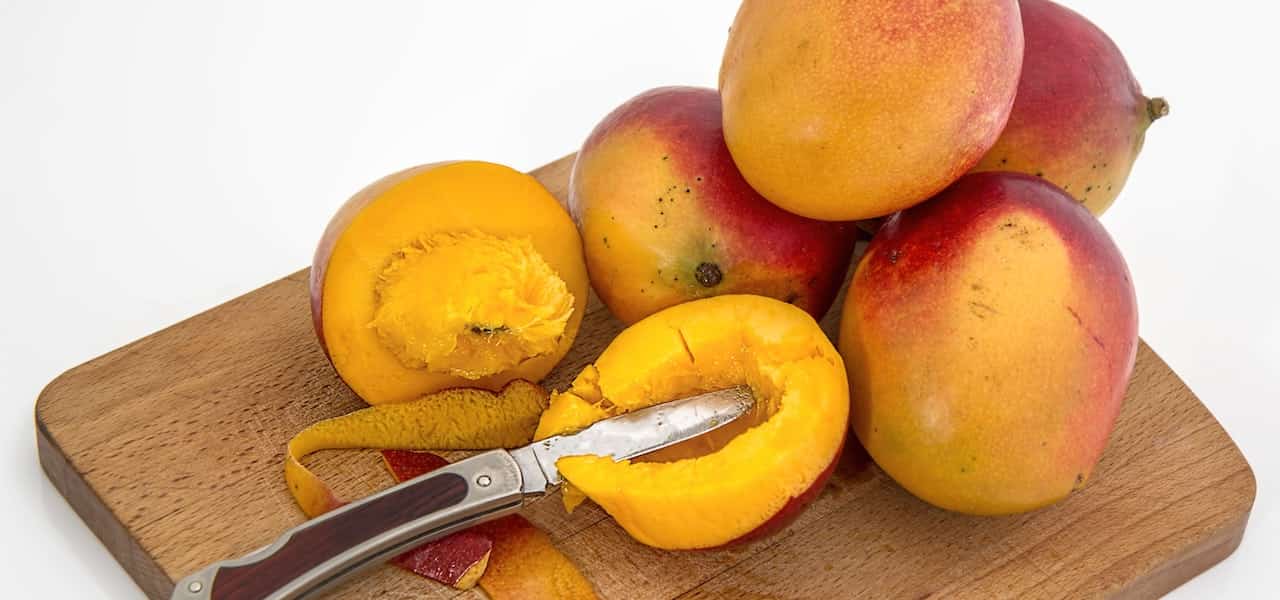Here is your complete guide to the benefits from mangoes.
Introduction to Benefits from Mangoes
What are the benefits from mangoes? Mangoes are one of the most delicious and nutritious fruits in the world. They are juicy, sweet, and packed with nutrients that provide numerous health benefits. Here are seven surprising health benefits of mangoes that you may not know about.
Boosts Immune System
Mangoes are rich in vitamin C, which is an essential nutrient that helps boost the immune system. A single cup of diced mangoes contains about 76% of the daily recommended intake of vitamin C. This nutrient helps produce white blood cells, which protect the body from infection and illness.
Lowers Cholesterol Levels
Mangoes contain high levels of fiber, pectin, and vitamin C, which can help lower cholesterol levels. Studies have shown that eating mangoes regularly can reduce bad cholesterol levels in the blood, which can lower the risk of heart disease. So what are the benefits from mangoes? Here is your complete guide to benefits from mangoes.

Promotes Digestive Health
Mangoes contain both soluble and insoluble fiber, which can help promote digestive health. These fibers help prevent constipation and aid in the absorption of nutrients. In addition, mangoes contain digestive enzymes that help break down proteins, which can improve digestion.
Enhances Skin Health
Mangoes contain vitamin A, which is essential for healthy skin. This nutrient helps promote the growth of new skin cells, which can improve skin tone and texture. In addition, mangoes are rich in antioxidants that protect the skin from damage caused by free radicals.
Boosts Brain Function
Mangoes contain glutamine acid, which is an important amino acid that helps boost brain function. This nutrient helps improve memory and concentration, and it can also help prevent neurological disorders.
Improves Eye Health
Mangoes are rich in beta-carotene, which is a nutrient that helps improve eye health. This nutrient helps protect the eyes from damage caused by UV rays, and it can also prevent age-related macular degeneration.
Read More About Keto Diet vs Atkins: What is The Difference?
Helps Control Diabetes: The Benefits from Mangoes
Mangoes are low in glycemic index, which means they do not cause a rapid spike in blood sugar levels. Mangoes are therefore an excellent fruit for diabetics. In addition, mangoes contain compounds that can help regulate insulin levels in the blood.
Read More About What Vitamins C Is Good For?
How Many Calories are in Mangoes? A Comprehensive Guide
Mangoes are a delicious and nutritious fruit that people all over the world enjoy. But if you’re watching your calorie intake, you may be wondering how many calories are in mangoes. In this comprehensive guide, we’ll take a closer look at the calorie content of mangoes and how they can fit into a healthy diet.

How Many Calories are in Mangoes?
A medium-sized mango, weighing around 165 grams, contains approximately 135 calories. However, the calorie content of mangoes can vary depending on their size and ripeness.
Are Mangoes High in Sugar? The Benefits from Mangoes
Mangoes are naturally sweet and contain natural sugars such as fructose, glucose, and sucrose. A medium-sized mango contains approximately 28 grams of sugar. While this may seem high, it’s important to note that these sugars are naturally occurring and provide the body with important nutrients and fiber.
Are Mangoes Fattening? The Benefits from Mangoes
Mangoes are not inherently fattening, as they are low in fat and contain no cholesterol. However, like any food, consuming too many mangoes can lead to weight gain if you exceed your daily calorie needs.
Read More About Pimples vs Cold Sores.
How Do Mangoes Fit into a Healthy Diet?
Mangoes can be a healthy and delicious addition to any diet when consumed in moderation. They are a good source of vitamins and minerals, including vitamin C, vitamin A, and potassium. Additionally, the fiber content in mangoes can help promote satiety and aid in digestion.
Can Mangoes Help with Weight Loss?
While mangoes contain natural sugars and calories, they can still be included in a weight loss diet when consumed in moderation. The fiber content in mangoes can help promote satiety and reduce hunger, which can help you consume fewer calories overall.
How to Incorporate Mangoes into Your Diet: Benefits from Mangoes
Mangoes are a versatile fruit that can be enjoyed in many different ways. They can be eaten fresh, sliced, or diced and added to smoothies, salads, or yogurt bowls. Mangoes can also be used in savory dishes, such as salsas or curries.
Conclusion
In conclusion, mangoes are not only delicious but also packed with numerous health benefits. They can boost the immune system, lower cholesterol levels, promote digestive health, enhance skin health, boost brain function, improve eye health, and help control diabetes. So next time you reach for a snack, consider adding some delicious mangoes to your diet.
Read More About What Is Balayage.
Mangoes are a tasty and nutritious fruit that can be included in a healthy diet. While they do contain calories and natural sugars, they can still be included in a balanced diet when consumed in moderation. So go ahead and enjoy this tropical fruit in all its forms!
Read More About Understanding the Five Languages of Love.
Read More About The Meaning of Teeth Falling Out in a Dream.

